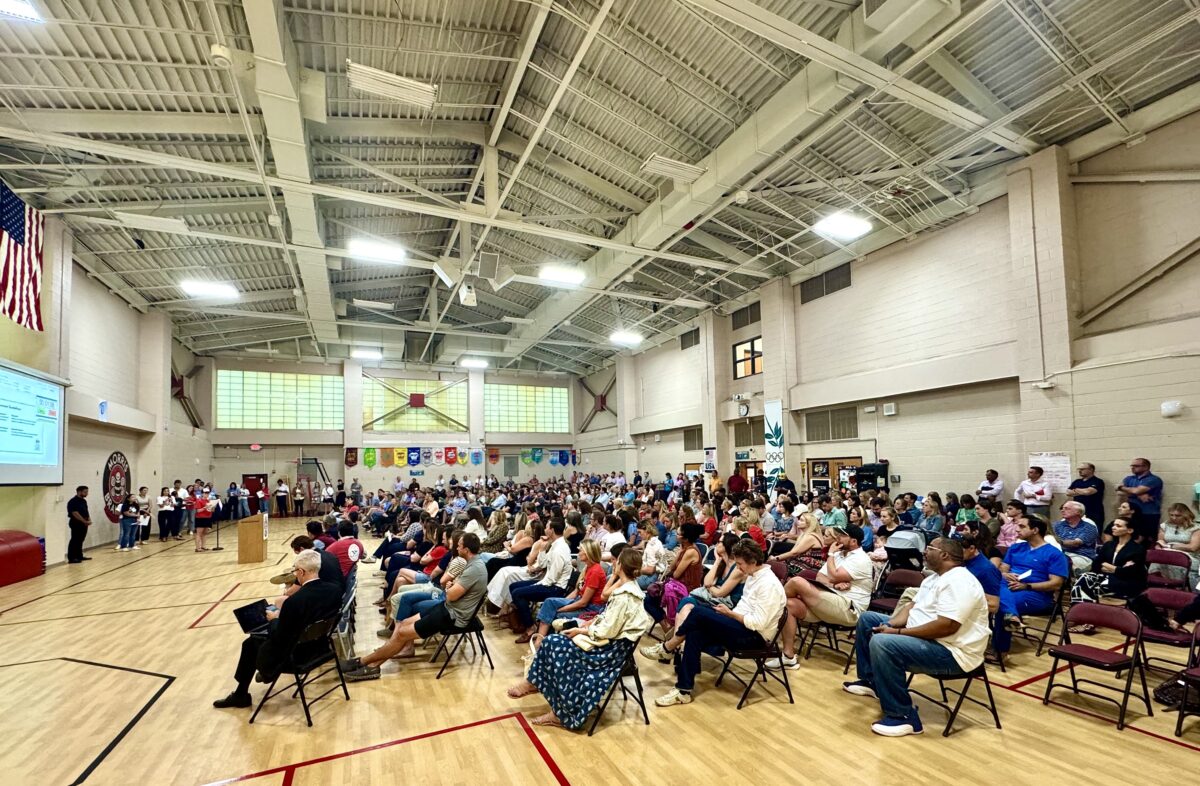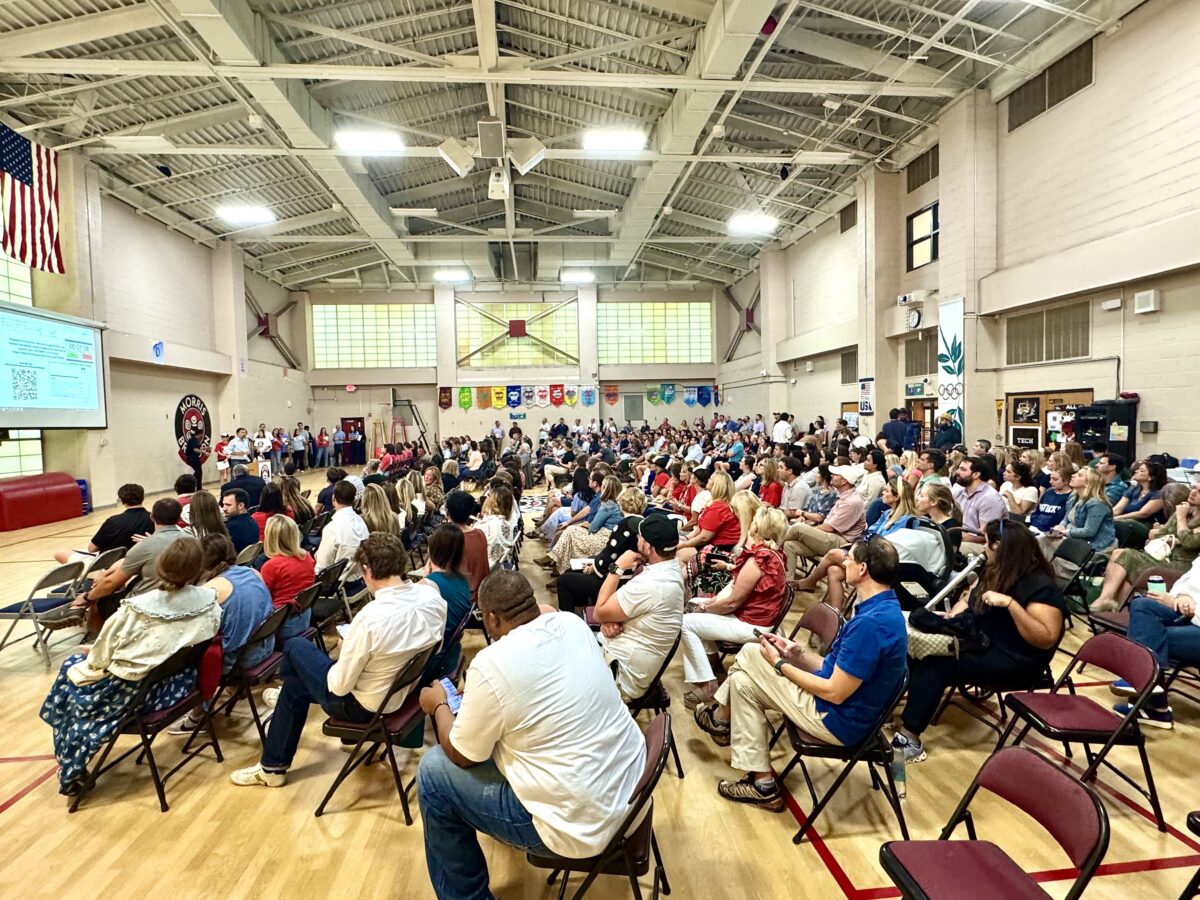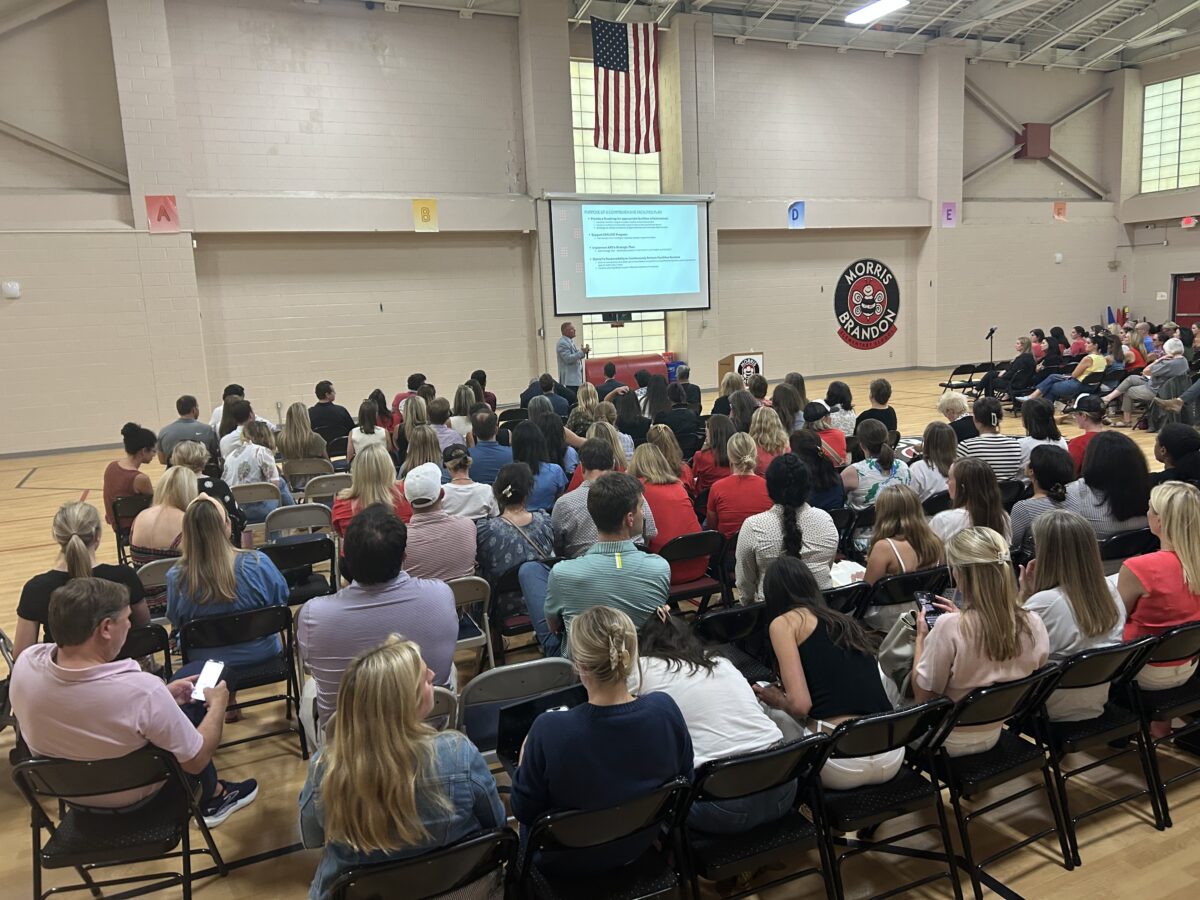


Atlanta Public Schools is grappling with a $100-plus million budget deficit—and the way the school system has proposed fixing it has Buckhead parents up in arms. The deficit stems primarily from teacher salary increases ($60 million for an 11% average increase), implementing an in-house school nutrition program ($15 million), and state health benefit cost increases.
The APS Forward 2040 Comprehensive Long Range Facilities Plan proposes sweeping changes to the entire district over the next 10 to 15 years. Currently, the district has a capacity for 70,000 students, but only about 50,000 are enrolled. (That number has stayed remarkably steady over the last 10 years, including pre- and post-pandemic.) APS faces a paradox: overcrowding issues in affluent neighborhoods like Buckhead, while 42 of its 73 schools remain under-enrolled, and aging facilities throughout the district need attention. The school system frames the proposal as essential for long-term sustainability.
The APS Forward 2040 website describes the plan as a “four-legged stool, in which the seat represents the facilities, supported by educational framework, demographics, condition, and funding. Each of these legs carries an equal amount of importance when developing a facilities master plan.” A recent press release outlined the purpose as, “to not only balance enrollment and improve the use of facilities, but also to enhance academic offerings across the district, ensuring all students have equitable access to robust, high-quality learning opportunities.”
APS’s challenges reflect broader demographic shifts. Angira Sceusi, executive director of educational nonprofit redefinED Atlanta, which publishes the Atlanta School Data Project—a report organizing publicly available Georgia Department of Education data on school performance and equity—points to fundamental changes in the city’s population. Fewer people are having children, and Atlanta’s growth is being driven by professionals without children. She also cites pandemic-related impacts, including increased private school enrollment and homeschooling, as factors affecting public school numbers.
In December 2025, the school board will decide whether to move forward with one of the proposals in APS Forward 2040—or potentially none of them.
The scenarios for the North Atlanta cluster, as of September 19th, would eliminate all dual-campus schools:
After these changes, “realignment”—or boundary redrawing—would follow. The proposal says redistricting will balance enrollment, create more equitable funding, and improve programming. However, some Buckhead parents feel the unveiling of this plan has left them with more questions than answers.
Jenny Perry, a parent advocate associated with Save Brandon—a community effort supporting all North Atlanta Cluster schools—questions the financial transparency. “The big question for us is, where are the hard numbers?” she says. “You’re saying that this is to solve a deficit, but we’ve yet to see any numbers on the actual savings.”



The Save Brandon website, which notes it is not authorized by APS or Morris Brandon Elementary, highlights that Morris Brandon already operates as the “lowest cost-per-pupil school in the district” and questions why such a high-performing, efficiently-run school would face restructuring.
Erin Istanbulluoglu, co-president of the Jackson PTO, echoes concerns about the rushed process. “It wasn’t fully communicated to our community before the process started,” she says. “People don’t have a good grasp of what’s driving this process and why the North Atlanta cluster is being so heavily impacted.”
Parents note that Jackson Elementary’s data shows strong performance, with high College and Career Ready Performance Index (CCRPI) and Georgia Milestones results. They question why proposals disproportionately affect schools and clusters already succeeding, and worry that such complex decisions are being rushed.
The proximity to numerous private schools adds another layer of concern. Parents warn that these proposals, combined with redistricting threats, risk driving families away from APS altogether, further eroding trust and enrollment at a time when the district needs to retain students.
The Buckhead Council of Neighborhoods, which represents 43 neighborhoods and over 75% of Buckhead’s 80,000 residents, shares parents’ concerns about the process.
“Our schools are part of how people decide where they’re going to live and become part of a community,” says Executive Director Debra Wathen. “People have invested in their children’s futures.” She points to the compressed timeline, budget opacity, and lack of clear cost savings as serious concerns. “We don’t have an education problem in the North Atlanta cluster. It’s a mistake to look at this from a facility standpoint without having the education of our children as the primary focus.”
Wathen also highlights additional complexities the scenarios could bring, including changes to Buckhead’s already challenging traffic patterns and potential impacts on property values. “People pay a premium to be in particular school districts,” she notes. A recent council meeting in September confirmed that Wathen’s concerns are widely shared across the Buckhead community.
Jorge Diez of Georgia Strategy Group, serving as media representative for APS, says the parental feedback has been varied and that the district has been listening to parents, teachers, staff, and community stakeholders through meetings, surveys, and direct engagement. “The scenarios we’ve released so far reflect that input. Each round of feedback has helped refine and shape the work, and that process will continue as we move forward.”
As a sign of that listening, APS officials sent out a press release this week stating that “scenarios continue to change and evolve based on the extensive feedback, input, and feelings shared by the community. Nothing is final.”
Further complicating matters is the November 4th, 2025, election for the Board of Education, with four key seats up for contest. The new board members will help decide whether to approve, decline, or amend the APS Forward 2040 Facilities Plan just weeks after taking office.
Anyone who opposes the plan, whether they have a child enrolled in the district or not, can sign the North Atlanta Cluster petition at SaveBrandon.com or attend future school board meetings. APS continues to hold public forums, with schedules available on the district website at atlantapublicschools.us.